|
The ThermIon project is innovating lithium extraction by means of the ion-pumping technique. Committed to improving electrode material properties and performance, the team is performing electrochemical analysis and modelling. The project’s ambition lies in optimizing efficiency, performance, and long-term stability of the lithium extraction process through advanced theoretical models and rigorous experimental analysis, thereby revolutionizing the future of sustainable energy. |
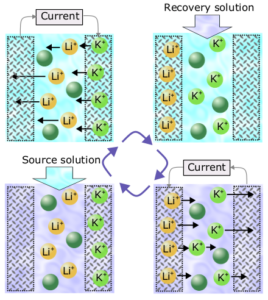 |
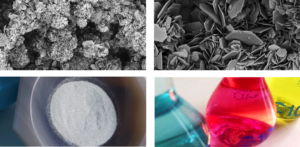 |
Aqueous zinc-ion batteries (ZIBs) are promising energy storage device for stationary applications, due to their low costs and high environmental friendliness. However, their commercialization remains hindered by some unsolved challenges related to both electrodes, electrolyte and to the interaction among all the cell components. Here, the consortium is focused on bringing aqueous Zinc-ion batteries closer to their commercialization through the development of an industrial full-cell demonstrator. |
|
Predicting precisely the state of health of lithium-ion batteries for posterior cycles is an important step towards improvement of lifetime and thus sustainability. The project NeuroBatt aims to use a complete picture of data such as voltage, current, impedance and temperature of each cell in a battery pack to define a prediction model based on machine learning techniques in order to detect aging in an early state. |
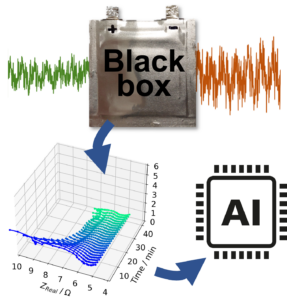 |
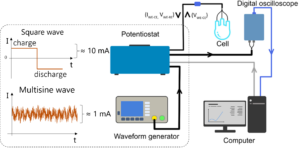 |
In the Fraunhofer Attract project “ProLIBs: A Battery Cell ID Card”, the service life of batteries for electric vehicles and other applications is predicted and improved. The new method for lifetime prediction is based on a combination of measurements of battery properties and models of battery cell behavior as well as machine leaning methods. These measurements can be made directly while a battery is in use, for example, in an electric car. By applying this method for more accurate lifetime prediction of high energy lithium ion battery cells and other cell types such as solid-state batteries in the battery management system (BMS), it is possible to achieve increased lifetime with optimal charge and discharge profiles. |
|
In this project, we will perform a fundamental investigation of electrochemical processes, aimed at a long-term improvement of the technological level of electrochemical devices. During the project, we will develop a phenomenological theory of electron and ion transfer processes that extends the current theories (in particular, Marcus-Hush theory). The theory will take into account non-ideal effects in concentrated solutions and double layer charge effects (Frumkin effect). The experimental methods will include dynamic impedance spectroscopy hyphenated with quartz crystal microbalance. |
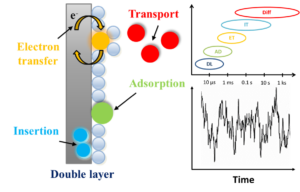 |
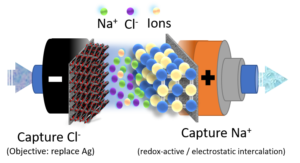 |
This project is dedicated to producing a new era of water purification and desalination devices based on the concept of mixing entropy and desalination battery. The aim of this project is to develop a full concept for the next-generation Desalination Battery (DB) reactors, addressing 1) the issue of new materials for anion capturing and 2) cell design, which gives lower energy losses and more flexible operation in treating water with higher salt content. |
|
Aqueous zinc-ion batteries (ZIBs) are attracting great attention as alternative low cost and environmentally friendly energy storage systems. Therefore, we are focusing on the development of aqueous ZIBs with high power density and long cycle life, with an approach crossing the borders of fundamental electrochemistry, material science, multi frequency analysis, and modelling |
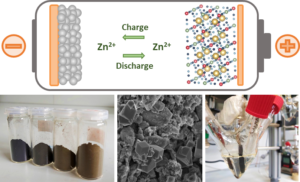 |